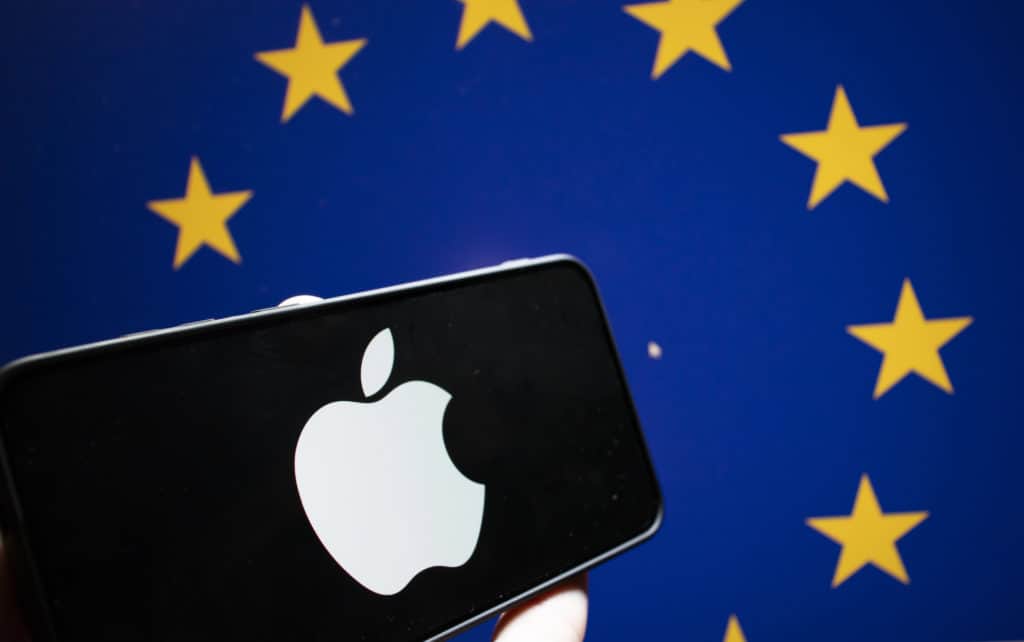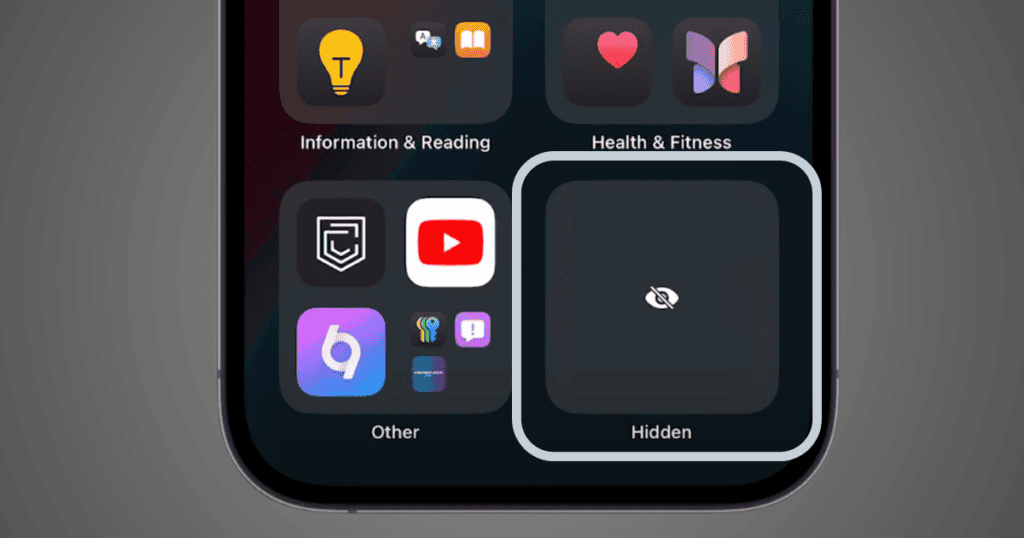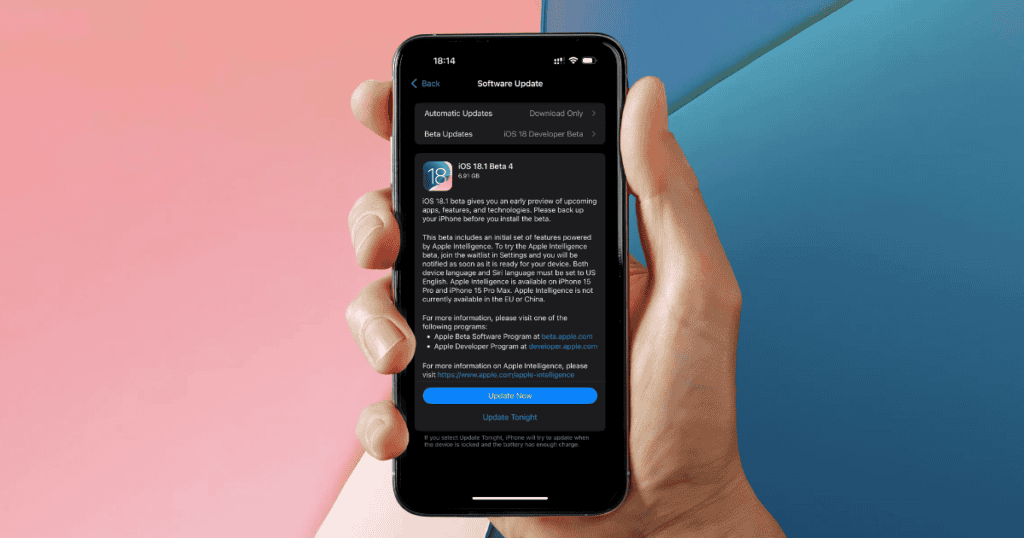The release of iOS 18.2 brings a landmark feature that allows EU users to delete core apps such as Safari, Messages, and the App Store. This change, which aligns with the EU’s Digital Markets Act, introduces a new level of user autonomy and customization in how you manage and interact with your device. But what does this update really mean for you as a user, and how might it shape your experience with your iPhone or iPad in the long term?
1. iOS 18.2 Overview: The Major Changes
The most striking update in iOS 18.2 is the ability for users within the European Union to fully delete several pre-installed apps that were previously untouchable. This shift grants users greater freedom in managing their devices, offering:
- Deletion of Core Apps: You can now delete essential apps like Safari, App Store, Messages, Camera, and Photos.
- Reclaiming Storage Space: Free up storage by removing apps you no longer use.
- Third-Party Replacements: Replace core Apple apps with third-party alternatives that better suit your preferences.
Unlike users in other regions, such as the United States, who can only hide these apps, EU users benefit from true app customization that allows for complete deletion and replacement. This evolution reflects Apple’s compliance with EU regulations and signals a broader shift toward more open user control.
2. Core Apps Users Can Now Remove in iOS 18.2
With iOS 18.2, several core apps are now optional for EU users. The apps eligible for deletion include:
- Safari: Opt for alternative browsers like Chrome or Firefox.
- App Store: Though central to downloading apps, you can now remove it and reinstate it at any time via the Settings app.
- Messages: Use messaging platforms like WhatsApp, Telegram, or Signal in place of Apple’s default app.
- Camera and Photos: Third-party camera and photo management apps can now fully replace these.
These deletions allow for a more streamlined, personalized experience where you control which apps stay on your device. Additionally, any deleted core app can be easily restored if needed, offering flexibility without permanent loss of functionality.
3. The Impact on Your User Experience
The ability to delete core apps fundamentally enhances how you manage your iPhone or iPad. The update aligns with the growing trend of digital minimalism, allowing you to remove unnecessary apps and tailor your device to better fit your needs.
Key Benefits:
- Reduced Clutter: Free up your home screen from apps you don’t use, making your device feel more organized and intuitive.
- Improved Performance: By eliminating unused apps, you might notice a small boost in performance and responsiveness, as well as additional storage space.
- Personalization: Tailor your device to your lifestyle by using third-party apps that offer features better suited to your personal preferences or workflow.
The result is a more fulfilling digital experience, where your engagement with your iPhone or iPad feels more aligned with your individual needs. This marks a significant shift toward user autonomy, allowing you to customize your device beyond Apple’s default settings.
4. Why This Change? Regulatory Influence
The introduction of core app deletion in iOS 18.2 can be directly tied to the EU’s Digital Markets Act (DMA), which aims to increase competition and prevent monopolistic practices in the digital space. The DMA mandates that tech companies give users more freedom over app management, ensuring consumers have the flexibility to choose third-party apps over default system applications.
Key Aspects of the Digital Markets Act:
- User Control: Ensures that users can modify their devices to suit their preferences.
- App Ecosystem Competition: Encourages a competitive environment where third-party apps can stand on equal footing with default apps.
- Transparency: Requires tech companies like Apple to operate in ways that enhance user freedom and transparency in software management.
By enabling the deletion of core apps, Apple is not only complying with these regulations but also promoting a future where users have more say in how they manage and interact with their devices.
5. Comparing iOS 18.2 to Previous Versions
The ability to delete core apps represents a major departure from previous iOS versions, where such control was limited. Previously, users could only hide core apps, leaving them to take up space on the device and continue functioning in the background.
Here’s how iOS 18.2 compares with earlier versions:
| Feature | iOS 18.2 (EU) | Previous iOS Versions |
|---|---|---|
| Delete Core Apps | Yes (EU users only) | No |
| Hide Core Apps | Yes | Yes |
| App Management Flexibility | High | Low |
| Regulatory Compliance | Yes (Digital Markets Act) | No |
The ability to remove apps like Safari and Messages offers users a new level of customization, which previous iOS versions could not accommodate. This change not only enhances your control over your device but also reflects Apple’s evolving response to the demands of regulatory bodies and user preferences.
6. User Feedback and Reception
Since the release of iOS 18.2, user reactions have been varied. Many in the EU have embraced the freedom to delete core apps, praising Apple for providing enhanced customization. However, some users have raised concerns about the potential impact on core device functionality.
Common Themes in User Feedback:
- Excitement Over Customization: Users appreciate being able to remove pre-installed apps they don’t use, making the device more personalized.
- Concerns Over Functionality: Some worry that deleting essential apps like App Store or Messages could lead to confusion or a loss of important functions.
- Third-Party Exploration: Users are exploring third-party alternatives with more enthusiasm, particularly for messaging and photo management apps.
Despite the concerns, the general reception has been positive, especially from users who have long desired a more minimalist, personalized device.
7. Future Implications for Apple and App Ecosystems
The changes introduced in iOS 18.2 could signal a broader shift in how Apple approaches user autonomy and app management in the future. This update opens the door for further flexibility in managing pre-installed apps across all regions, not just the EU.
What to Expect Moving Forward:
- Global Expansion: It’s possible that Apple could extend similar core app deletion capabilities to other regions, depending on user demand and regulatory pressures.
- Increased App Competition: With users able to delete Apple’s core apps, third-party developers will likely be motivated to create better, more competitive alternatives.
- User-Centric Development: Apple could prioritize features that offer more granular control over app management, further enhancing user autonomy.
This could lead to a more diverse and competitive app ecosystem, benefiting both consumers and developers by promoting innovation and user-driven design.
A New Era of Control with iOS 18.2
The iOS 18.2 update marks a significant evolution in user control, especially for EU users, by enabling the deletion of core apps like Safari, Messages, and the App Store. This move not only complies with the Digital Markets Act but also empowers users to create a more customized, clutter-free, and personalized device experience.
As the demand for digital minimalism and user autonomy grows, this update signals a future where your interaction with your iPhone or iPad is increasingly aligned with your personal preferences. Whether you choose to stick with Apple’s apps or explore third-party alternatives, iOS 18.2 gives you the power to make your device truly your own.
With the possibility of further developments on the horizon, this update sets the stage for a more flexible and user-driven mobile experience—one where you have the freedom to decide what apps belong on your device.




